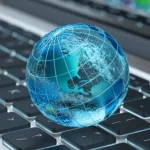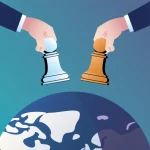Introduction
The year 2025 is proving to be one of profound transformation for global politics, technology, and culture. Nations are redefining alliances, artificial intelligence is becoming embedded in everyday life, and celebrities are using their platforms to influence global conversations. Against this backdrop, the world is both more interconnected and more divided than ever before.
Dusktimes.com, as a hub for global news and insights, explores how these dynamics are shaping our lives and what they mean for the future.
The Changing Landscape of Global Politics
Geopolitical alliances are undergoing major realignments. The United States and European Union continue to navigate tensions with rising powers like China, while smaller nations are asserting their independence on the world stage. In the Middle East, new economic partnerships are emerging as countries diversify away from oil dependency, while in Africa, young democracies are attracting global investors.
In 2025, political discourse is also increasingly shaped by climate policies and technology regulation. Governments are under pressure to address climate change while balancing economic growth. Simultaneously, the debate over artificial intelligence ethics is pushing leaders to craft legislation that safeguards citizens while fostering innovation.
Sweden, Germany, and Japan are positioning themselves as mediators in conflicts, while countries like India and Brazil are redefining what it means to be global powerhouses. The result is a multipolar world, where influence is more widely distributed than in previous decades.
Technology as the Driving Force of Transformation
The rise of AI and automation is no longer confined to laboratories or tech companies—it is part of everyday life. From healthcare diagnostics to financial forecasting, artificial intelligence is altering industries in ways unimaginable just a decade ago.
In 2025, the conversation has shifted from what AI can do to how humanity should manage it. Ethical dilemmas dominate: Who controls the algorithms? How do we prevent job loss from creating social unrest? What safeguards ensure AI systems are fair and transparent?
Meanwhile, advancements in quantum computing, renewable energy technologies, and biotechnology are rewriting the rules of global competition. Countries with strong research ecosystems, such as the United States, China, and South Korea, are gaining an edge, while others are racing to keep up.
Celebrity Influence in the Digital Age
Celebrity culture is also undergoing a transformation. No longer just entertainers, celebrities in 2025 are political voices, entrepreneurs, and social activists. Platforms like Instagram, TikTok, and X (formerly Twitter) have given global stars direct access to billions of fans.
Some celebrities are championing environmental sustainability, while others use their influence to address social issues like mental health, gender equality, and refugee rights. In many ways, celebrities have become more trusted than politicians when it comes to influencing public opinion, especially among younger generations.
The blending of entertainment, business, and activism means celebrity voices are shaping debates that were once reserved for policymakers. From Hollywood actors testifying before parliaments to global musicians advocating for climate action, celebrity influence is now a powerful force in shaping global narratives.
Global News Trends That Define 2025
The headlines of 2025 reveal recurring themes: climate change, AI regulation, global migration, and economic shifts. Natural disasters linked to climate change are forcing countries to accelerate green policies. AI-related legislation is sparking debates in parliaments worldwide. Migration, fueled by conflict and climate displacement, continues to challenge nations’ immigration policies.
Economically, global inflationary pressures are easing, but inequality between nations persists. Developing countries are pushing for reforms in institutions like the IMF and World Bank, while advanced economies debate how to sustain growth amid aging populations and labor shortages.
FAQs
Why is 2025 considered a transformative year in global politics?
Because geopolitical alliances are shifting, climate policy is at the forefront of diplomacy, and technological governance is reshaping international relations.
How is AI affecting ordinary people in 2025?
AI influences healthcare, education, finance, and entertainment. While it improves efficiency, it also raises ethical and employment-related concerns.
Are celebrities more influential than politicians?
In many cases, yes. Celebrities can connect with global audiences instantly and often drive social awareness campaigns that resonate more with younger generations.
What are the biggest challenges facing world leaders today?
Balancing climate responsibility with economic growth, regulating artificial intelligence, managing migration, and addressing geopolitical rivalries.
How is culture shaping global news?
Cultural narratives, driven by music, film, and social media, influence global perspectives on politics, identity, and values.
Conclusion
2025 is a year of convergence—where politics, technology, and celebrity culture are intersecting in unprecedented ways. The future is being shaped not only by governments and corporations but also by cultural icons, grassroots movements, and technological revolutions.







